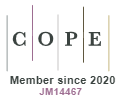SHARING ECONOMY AS A DRIVER FOR TRANSITION TO SUSTAINABLE MOBILITY
DOI:
https://doi.org/10.5585/geas.v7i3.855Keywords:
Sharing Economy, Transition to Sustainability, Mobility.Abstract
There is growing evidence of the need experienced by society to seek transition to sustainability. Mobility is one of the areas that has sought this transition, which continually seeks sustainable alternatives. In this context, the sharing economy has had an important influence on society, although there are still doubts about whether it supports the movement to sustainability. To discuss this, the paper aims at analysing transport services based on transition to sustainability approach. After the theoretical arguments, a desk research was carried out and two real cases are addressed by way of illustration, as empirical support for the understanding of the arguments. It is identified in the research that the cases have particularities regarding the market (users) regime, and the need to think about their own values and how valuable they are to its peers. The results suggest different paths of change, even they can act favourably to the transition movement towards sustainability. Thus, by proposing a new theoretical debate it can be concluded that sharing economy can be considered a path to sustainability, maintaining its original properties and acting as a socio-technical system of change.Downloads
Downloads
Published
2018-09-13
How to Cite
Pereira, C. H. T., & Silva, M. E. (2018). SHARING ECONOMY AS A DRIVER FOR TRANSITION TO SUSTAINABLE MOBILITY. Revista De Gestão Ambiental E Sustentabilidade, 7(3), 451–468. https://doi.org/10.5585/geas.v7i3.855
Issue
Section
Artigos
License
Copyright (c) 2019 Carlos Henrique Távora Pereira, Minelle E. Silva

This work is licensed under a Creative Commons Attribution-NonCommercial-ShareAlike 4.0 International License.
Marcela Carvalho Mendes Vieiria, Laércio Ramón Da Silva Nascimiento, Fabiana Pinto de Almeida Bizarria (2022)
Desenvolvimento e Sustentabilidade na Perspectiva da Gestão Pública – Revisão Sistemática em Bases de Dados da América Latina. Cuadernos de Gobierno y Administración Pública, 9(1), 1.10.5209/cgap.78133
Views
- Abstract 211
- PDF (Português (Brasil)) 201









